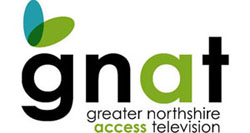Around the Table

Around the table
By Andrew McKeever
It was an exciting evening at the GNAT studios last night — Thursday, Sept. 29 to be exact — when we hosted a roundtable discussion/debate between the three candidates competing for the two seats in the Bennington-4 legislative district.
That district consists of the towns of Manchester, Arlington, Sandgate and most of Sunderland.
Incumbents Cynthia Browning, of Arlington, and Steve Berry, of Manchester, both Democrats, squared off with Brian Keefe, their lone Republican challenger. In the at-large voting that will determine the eventual winner come Election Day, Nov. 8, the top two vote-getters will go on to represent the district when the Legislature convenes in January.
From my perspective as the moderator and sitting alongside the candidates at the table, there was cordiality and good humor among the three, even when things got a little heated when Keefe chided Berry for voting for a long string of items which resulted in tax increases. Berry defended the votes and challenged Keefe over which votes he would have gone the opposing way on, given that popular items such as support for the Veterans Home in Bennington.
That triggered a lively discussion which I decided to let roll for a few minutes, even though we were trying to limit the answers to two minutes in order to get to as many topics as possible in the two hours we had to work with. It’s always a bit of a judgment call as the moderator. In our first segment, we had three questions that were posed in a structured way — one on Vermont Health connect, the controversial state health exchange that Republican gubernatorial hopeful Phil Scott has called for replacing by integrating Vermont into the federal exchanges; another on Act 174, the new statute designed to give localities some more influence with regard to the siting of renewable energy, and a third one, designed as sort of an open-ended question asking them what they thought the biggest issue or problem facing the district was.
The questions were designed to give the candidates a chance to talk on a local level as well as a big-picture one. They were developed by me and the candidates had no advance knowledge of what they were to be asked.
The second round, when we invited the studio audience to ask questions, was meant to be a little looser, more “conversational” — and we certainly got that. The dialogue started by Keefe and Berry led to an interesting view of balancing the “affordability” of Vermont and taxpayer burdens with state services deemed vital and essential.
We never got to a question about the opiates crisis, and if we had had a little more time that was the next question I had lined up. The candidates did talk a little about legalizing marijuana. We should have spent more time on Act 46, the new state education consolidation act, but only touched on that briefly towards the end.
Clearly there was a sentiment from our limited sampling of questioners that the tax issue is a big deal and lawmakers next year may be finally forced to grapple with state spending stressing out state fiscal resources. If Phil Scott wins the governorship, his early embrace of “affordability” and limiting state spending increases to align with the growth of the state’s economy will look shrewd.
All in all, an interesting evening, and thanks once again to the candidates, the audience, the staff, crew and volunteers of GNAT for making it all happen.






